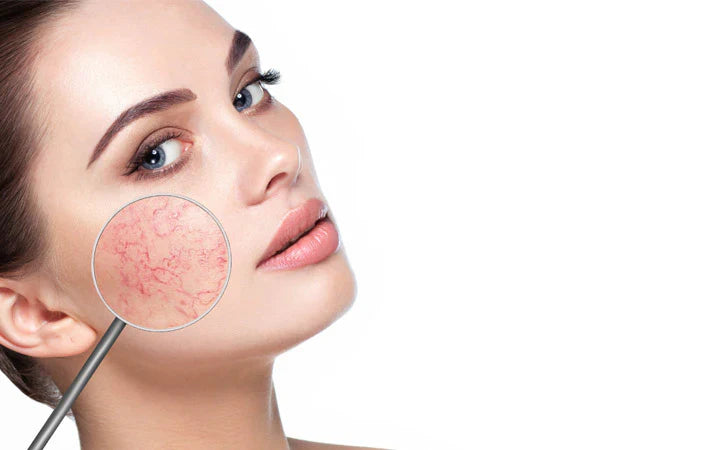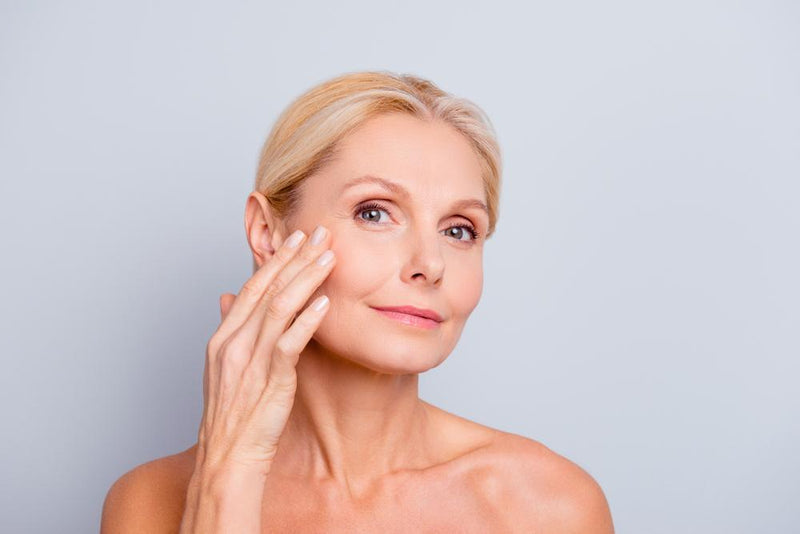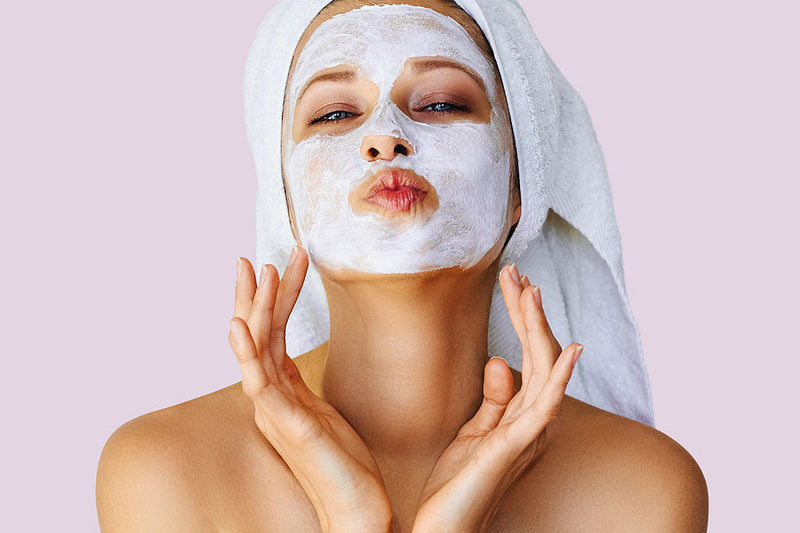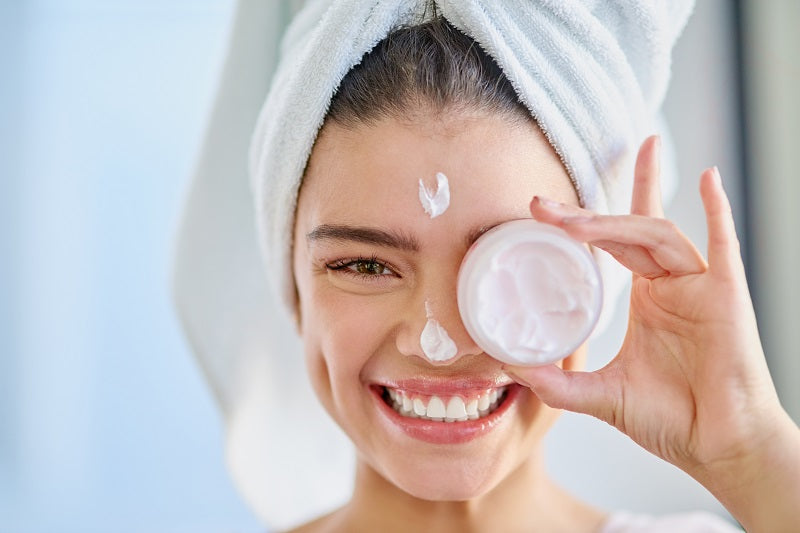

Beyond the Beard: The Science of Healthy Skin for Men
Discover how understanding the biology of male skin can transform your skincare approach from guesswork to precision, delivering real results through evidence-based strategies.
For decades, men's skincare has been overshadowed by the more visible aspects of grooming—beards, haircuts, and cologne. But the truth is that what lies beneath the surface matters far more than what grows on top of it. Healthy skin isn't just about appearance; it's your body's largest organ, your first line of defense against environmental threats, and a critical indicator of your overall health.
This comprehensive guide moves beyond superficial advice to explore the actual science behind male skin biology and how to leverage this knowledge to build a truly effective skincare regimen. Whether you're dealing with persistent acne, premature aging, sensitivity, or simply want to optimize your skin's health, understanding the biological foundations will transform your approach from reactive to proactive.
The Biological Reality of Male Skin
Men's skin differs significantly from women's skin in several key biological aspects that directly impact skincare needs and product effectiveness:
- Thicker epidermis: Male skin is approximately 20-25% thicker than female skin, providing more natural protection but also requiring more potent active ingredients for penetration
- Higher sebum production: Testosterone drives increased oil production, making men more prone to acne, enlarged pores, and shine
- Denser collagen structure: Men have more collagen fibers, which delays visible signs of aging but doesn't eliminate the need for prevention
- Larger pores: Due to higher sebum production and thicker skin, men typically have more prominent pores that are prone to clogging
- Different pH levels: Male skin tends to be slightly more acidic (pH 4.5-5.5) compared to female skin, affecting product compatibility
Understanding these biological differences is the foundation of any effective scientific skincare for men. Products and routines designed for women often fail to address these unique characteristics, leading to suboptimal results or even skin irritation.
The Skin Barrier: Your First Line of Defense
The stratum corneum—the outermost layer of your skin—functions as a sophisticated barrier that protects against environmental aggressors while maintaining hydration. This barrier is composed of skin cells (corneocytes) embedded in a lipid matrix of ceramides, cholesterol, and fatty acids.
When this barrier is compromised through harsh cleansing, over-exfoliation, or environmental damage, it leads to increased transepidermal water loss (TEWL), inflammation, sensitivity, and accelerated aging. The key to healthy skin for men lies in supporting and strengthening this natural barrier rather than stripping it away.
Look for products containing barrier-supporting ingredients like ceramides, niacinamide, panthenol, and hyaluronic acid. Avoid harsh surfactants like sodium lauryl sulfate (SLS) and high concentrations of alcohol that can disrupt this delicate ecosystem.
The pH Factor
Your skin's natural pH ranges from 4.5 to 5.5, creating an acidic environment that inhibits harmful bacteria growth and supports healthy skin flora. Many traditional soaps and cleansers have alkaline pH levels (8-10) that disrupt this balance, leading to dryness, irritation, and increased susceptibility to acne. Always choose pH-balanced products that respect your skin's natural acidity.
Evidence-Based Ingredients That Actually Work
Not all skincare ingredients are created equal. The cosmetic industry is filled with marketing hype and unproven claims. However, certain ingredients have substantial scientific backing for their effectiveness in addressing male skin concerns:
Retinoids
Derived from vitamin A, retinoids are the gold standard for anti-aging and acne treatment. They increase cell turnover, stimulate collagen production, and normalize sebum production. Start with low concentrations of retinol (0.1-0.3%) and gradually increase as your skin builds tolerance.
Niacinamide (Vitamin B3)
This multitasking ingredient reduces inflammation, minimizes pore appearance, regulates oil production, and strengthens the skin barrier. Concentrations of 2-5% are effective for most concerns without causing irritation.
Salicylic Acid
A beta-hydroxy acid (BHA) that penetrates deep into pores to dissolve oil and dead skin cells. Particularly effective for men with oily, acne-prone skin. Use concentrations of 0.5-2% in leave-on products.
Vitamin C (L-ascorbic acid)
A powerful antioxidant that neutralizes free radicals from UV exposure and pollution while brightening skin tone and supporting collagen synthesis. Look for stable formulations with concentrations of 10-20%.
Hyaluronic Acid
A humectant that can hold up to 1000 times its weight in water, providing intense hydration without heaviness. Essential for all skin types, including oily skin that may be dehydrated.
The Role of Inflammation in Male Skin Health
Chronic low-grade inflammation is increasingly recognized as a key driver of many skin conditions, from acne and rosacea to premature aging. Male skin is particularly susceptible to inflammatory triggers due to higher sebum production and frequent mechanical irritation from shaving.
Shaving creates micro-tears in the skin that can lead to post-inflammatory hyperpigmentation (PIH) and increased sensitivity. This is why pre-shave preparation and post-shave recovery are critical components of any comprehensive men's skin health strategy.
To combat inflammation, incorporate anti-inflammatory ingredients like niacinamide, green tea extract, centella asiatica, and omega fatty acids into your routine. Additionally, avoid physical exfoliants with irregular edges (like walnut shells) that can cause micro-tears and increase inflammation.
UV Radiation: The Silent Skin Destroyer
Ultraviolet radiation remains the single largest contributor to premature skin aging and skin cancer risk. Men are statistically less likely to use sunscreen regularly, yet they experience higher rates of skin cancer and more severe outcomes.
UV exposure causes DNA damage in skin cells, breaks down collagen and elastin fibers, and generates free radicals that accelerate aging. The effects are cumulative and largely irreversible, making daily sun protection non-negotiable for evidence-based skincare.
Choose broad-spectrum sunscreens with SPF 30 or higher that protect against both UVA (aging) and UVB (burning) rays. Modern mineral and chemical formulations designed for men offer lightweight, non-greasy textures that work well under facial hair and won't clog pores.
Building Your Science-Backed Skincare Routine
Based on the biological realities of male skin, here's a step-by-step approach to building an effective routine:
Morning Routine
- Cleanse: Use a gentle, pH-balanced cleanser to remove overnight oil and prepare skin for treatment
- Treat: Apply targeted serums (vitamin C, niacinamide) to address specific concerns
- Moisturize: Use a lightweight, non-comedogenic moisturizer to support barrier function
- Protect: Apply broad-spectrum SPF 30+ as the final step
Evening Routine
- Cleanse: Remove dirt, oil, and sunscreen accumulated throughout the day
- Exfoliate (2-3 times weekly): Use chemical exfoliants like salicylic acid or gentle AHAs
- Treat: Apply reparative treatments like retinoids or intensive serums
- Moisturize: Use a slightly richer formula to support overnight repair
The 28-Day Rule
Skin cell turnover takes approximately 28-45 days in adults. This means you need to give any new product or routine at least 4-6 weeks before expecting visible results. Consistency is crucial—sporadic use will never yield the benefits that regular, sustained application provides.
Nutrition and Lifestyle: The Internal Foundation
While topical products are essential, they work best when supported by proper internal care. Your skin reflects your overall health, and certain lifestyle factors have profound impacts on skin quality:
- Hydration: Adequate water intake supports skin elasticity and barrier function
- Omega-3 fatty acids: Found in fatty fish, flaxseeds, and walnuts, these reduce inflammation and support skin barrier health
- Antioxidant-rich foods: Berries, leafy greens, and colorful vegetables provide compounds that combat oxidative stress
- Sleep quality: During deep sleep, your skin undergoes repair and regeneration processes
- Stress management: Chronic stress increases cortisol levels, which can trigger inflammation and oil production
When to See a Dermatologist
While most men can achieve excellent results with over-the-counter products and proper routine, certain conditions require professional intervention:
- Persistent acne that doesn't respond to OTC treatments after 8-12 weeks
- Suspicious moles or skin lesions that change in size, shape, or color
- Severe rosacea or persistent redness and inflammation
- Significant hair loss or scalp conditions
- Unexplained rashes or skin reactions
A board-certified dermatologist can provide prescription-strength treatments, professional procedures, and personalized guidance based on your specific skin biology and concerns.
Debunking Common Skincare Myths
The skincare world is rife with misconceptions that can sabotage your efforts. Let's address some persistent myths with scientific reality:
Myth: Men don't need moisturizer if they have oily skin
Reality: Oil and hydration are different. Oily skin can still be dehydrated, leading to increased oil production as compensation. Lightweight, oil-free moisturizers are essential for all skin types.
Myth: Natural ingredients are always safer and more effective
Reality: "Natural" doesn't equal safe or effective. Many natural ingredients can cause allergic reactions or irritation. Scientifically formulated products with proven active ingredients deliver more reliable results.
Myth: Expensive products are always better
Reality: Price doesn't correlate with effectiveness. Many affordable products contain the same proven active ingredients as luxury brands. Focus on ingredient lists, not price tags.
Myth: You only need sunscreen on sunny days
Reality: Up to 80% of UV rays penetrate clouds, and UVA rays (which cause aging) are present year-round, even through windows. Daily sunscreen is essential regardless of weather.
The Future of Men's Skincare: Personalized and Precise
As our understanding of skin biology continues to evolve, the future of men's dermatology points toward increasingly personalized approaches. Advances in genetic testing, microbiome analysis, and AI-powered skin assessment will enable truly customized routines based on individual skin biology rather than generic recommendations.
However, the fundamental principles remain constant: understand your skin's unique biology, support its natural functions, protect it from environmental damage, and maintain consistency in your approach. The science of healthy skin for men isn't about following trends or using the most expensive products—it's about working with your skin's natural biology to achieve optimal health and resilience.
By moving beyond superficial grooming to embrace the science behind skin health, the modern gentleman demonstrates the same intellectual curiosity and evidence-based thinking that defines excellence in every other area of life. Your skin deserves this level of attention and care—not for vanity's sake, but because healthy skin is foundational to overall health, confidence, and well-being.
Remember, the journey to healthy skin isn't about perfection—it's about progress through consistent, informed choices that respect the biological reality of your unique skin.


















